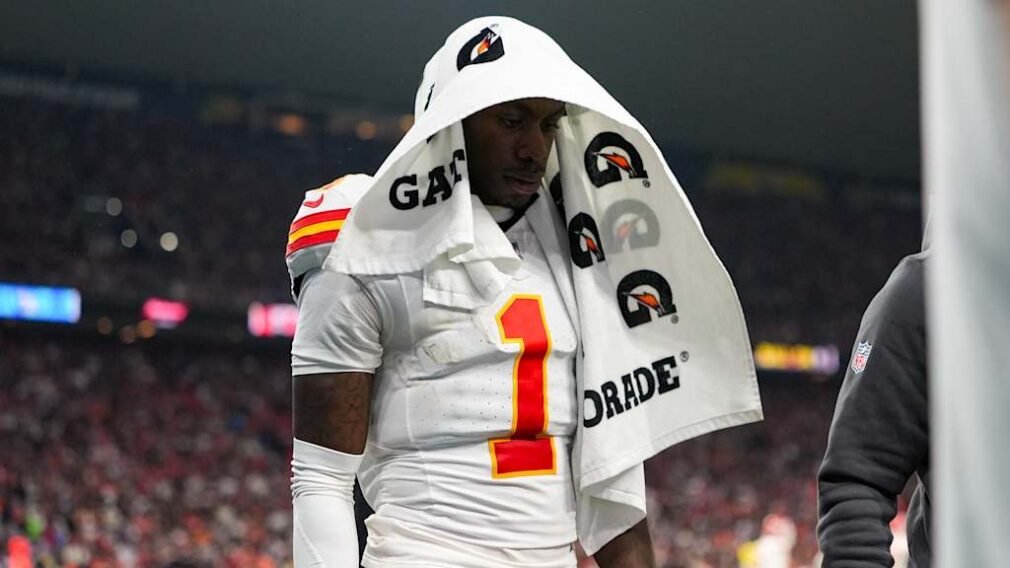Worthy’s Early Injury Triggers Millions in Refunds as Sportsbooks’ New ‘Bad Beat’ Policies Are Put to the Test
An early-game injury to Kansas City Chiefs wide receiver Xavier Worthy during the NFL’s season opener has become the first major test case for a new wave of “injury insurance” policies recently rolled out by top U.S. sportsbooks. The injury, which occurred in the first quarter of the game, triggered millions of dollars in refunds and credits for bettors.

The Rise of “Injury Insurance”
The response to Worthy’s injury is the culmination of a recent, and strategically timed, trend. In the weeks and months leading up to the 2025 NFL season, several of the largest U.S. sportsbooks launched new policies designed to protect customers from the “bad beat” of losing a player prop bet due to an early-game injury.
- Fanatics was a pioneer in this space, introducing its “Fair Play” initiative ahead of the 2024 NFL season and expanding it to cover first-half injuries for the current season.
- DraftKings debuted its “Early Exit” program last month.
- FanDuel and ESPN BET both launched their own versions of injury protection—”NFL Bet Protect” and a new injury insurance policy, respectively—just days before the season opener.
These policies are a direct response to the explosive growth of player prop betting and the associated customer frustration when a wager is derailed by an unforeseen injury.
Two Responses
The Worthy injury immediately put these new policies to the test, and the operators who had them in place were quick to act.
- Fanatics announced it had refunded $1.5 million in cash on all prop bets placed on Worthy.
- FanDuel and ESPN BET also honored their new policies, refunding straight bets with bonus bets and voiding the Worthy leg of any parlays, which were then repriced and paid out on the remaining winning legs.
This approach stood in contrast to that of other major operators. BetMGM, Hard Rock Bet, and Caesars Sportsbook, among others, do not have similar policies in place and settled all wagers on Worthy as losses according to their standard rules.
This divergence in policy led to a predictable, and vocal, response from customers. Social media was flooded with complaints from bettors who had lost their wagers on the non-refunding sites, with many threatening to take their business to the operators that offered protection.
Recommended
